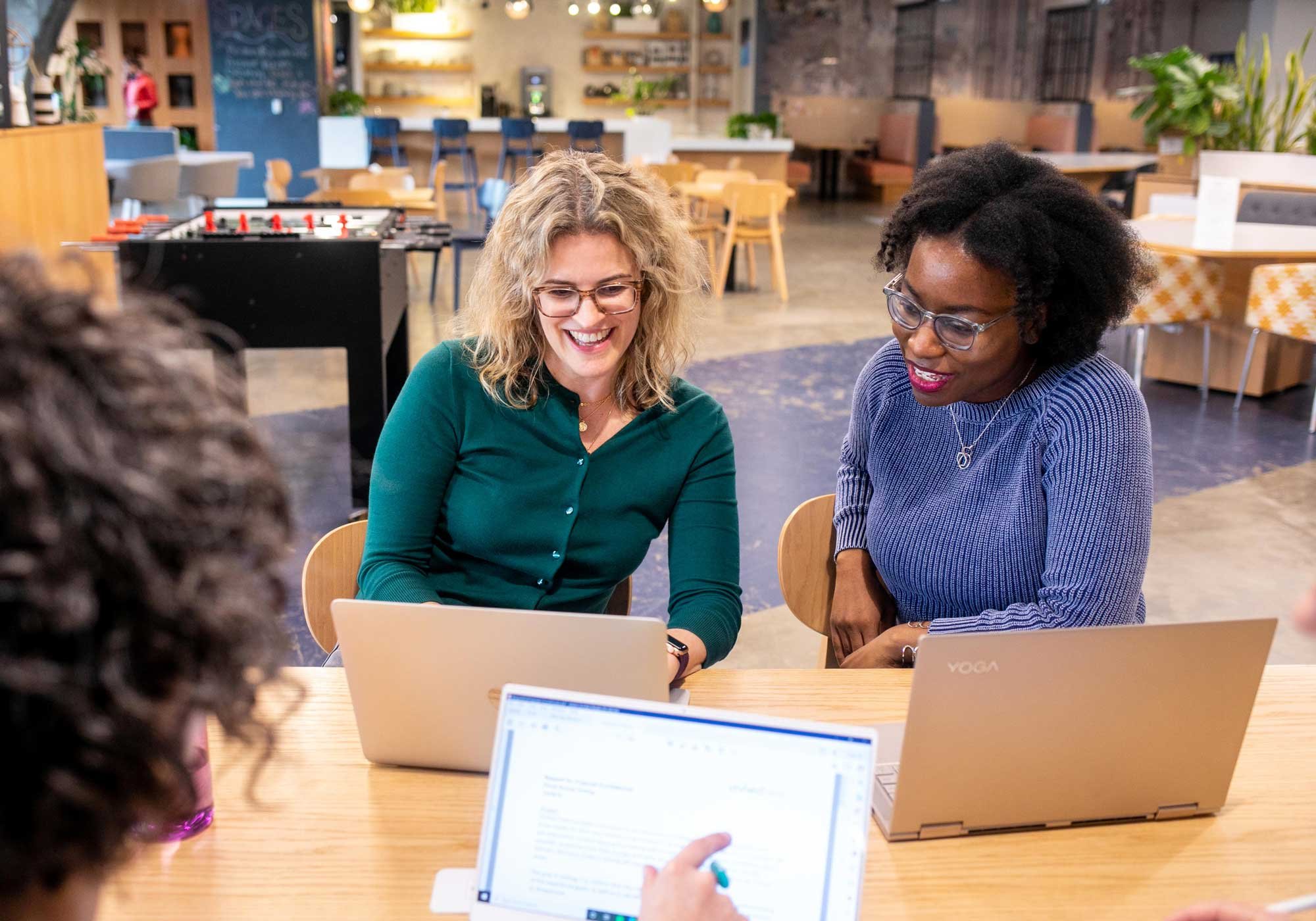
A space for our community to learn alongside us
Insights | Publications | Tools
The latest from our team
Doing Too Much? Take a Break With Us
It’s an unusually busy fall at Kera Collective. With postponed projects restarting and intersecting with newer ones already in full swing, it’s been tough to find a moment to just…breathe. Gratitude and connection are helping us through these frenzied times. We’re thankful for the amazing opportunities that have come our way and know we’re likely not the only ones experiencing some overwhelm as the seasons change. So, deep breaths everyone—we’re in this together!
Beyond The ADA: Creating Truly Disability-Friendly Museums
The fight for the Americans with Disabilities Act (the ADA) was long, hard, and demanding. Thanks to the incredibly taxing work of disabled activists for decades leading up to the eventual passing of the ADA in 1990, Americans with disabilities have more protections than ever before.
Going Undercover: 3 Ways We Unobtrusively Observe Visitors in Museum Exhibitions
Observations have always been one of my favorite ways to collect data. Watching how people move about and behave in a space is inherently addictive—there is so much you can discover if you pay close attention to what is happening around you, and it feels a bit like going undercover as a spy.
Hmmm... Questions, anyone?
We love to ask questions. Questions help us find clarity, push us to reconsider our assumptions, and open up the possibility for something new to emerge. This month all of our coffee break picks start with a question. Coincidence? We think not.
The Unexpected Ways I Use My Museum Education Skills as a Researcher
In light of recent posts about museum workers leaving the field (like this one from Seema Rao and this one from Paul Bowers), I’ve been inspired to write about my own recent career transition from museum education to research and consulting. My hope is that these ideas resonate with any museum educator, or really anybody considering work in another field, who feels uncertain about articulating how their skills can transfer to another profession.
Numbers Aren't Everything: 6 Things to Know About Qualitative Data
While there is often a bias toward quantitative data, numbers aren’t everything. I love the complexity and nuance revealed through qualitative data. Because qualitative data is open-ended, it helps you understand peoples’ thoughts and experiences in their own words–this can reveal interesting, profound, funny, and unexpected insights that would be lost in quantitative methods.
Sharing Summertime Inspiration from Kera Collective
With summer comes travel and adventure. Take a breather with us and see what we have been reading and doing!
Why Museums Should Embrace “Lived History”
There is a beauty in seeing history that is actively lived in, structures that are actively used rather than sitting behind a glass wall in a museum, tethered away from the lands where they were constructed.
Why Visiting a Museum Exhibition is More like Taking a Hike than Reading a Book
Too often, I see that exhibitions are developed in a way that assumes visitors will experience them like a book. However, results from hundreds of summative exhibition evaluations tells me that visiting an exhibition is more analogous to taking a hike than reading a book. Here are four ways museum visitors experience exhibitions like hikes rather than like books.
Welcome to the Kera Collective Coffee Break!
Hi everyone! We are grateful to have you here. This kicks off our first-ever "coffee break" newsletter, where we'll share with you what our staff is reading and pondering each month, with a few "surprise & delights" along the way. Thank you for joining us! Grab your favorite mug, and dive on in.
BIG NEWS! RK&A is now Kera Collective
Over the last two years, we galvanized around a refreshed approach and believed this should be reflected by a new name and look. We worked with the talented and inspiring women at Wild Awake Creative to develop the Kera Collective identity so that it reflects who we have come to be and what we see for our future.
Five Welcome Changes to Embrace in 2022
As we begin 2022, nearly two years since the pandemic began, what I’m most struck by is that the world I operate in is a fundamentally changed one.
Lessons Learned: Understanding DEAI as a Daily Practice
As we look toward 2022 and beyond, many museums are working to implement their new or existing missions, values, and initiatives that embrace and foreground diversity and inclusion.
Relevance Revisited: A Postscript
As we exit 2021, I’m reflecting back on where I began the year, when I noted that “in 2020, the museum field as a whole showed itself to be out of step with society. . . [and] irrelevant.” At that time, I had begun having regular conversations with Emlyn Koster, a thought leader with three decades of experience as a nature and science museum CEO.
Imagine: Museums Engaging with the Issues of an Anxious World
In her new Centering the Museum anthology, Elaine Gurian recalls our joint 2003 article that began: “Consider a world in which every museum, as either an extension of its mission or as its raison d’être, is geared to respond to contemporary events and issues” Imagining the future of museums has never been a more pressing need.
The Significant Loss of Museum Educators in 2020: A Data Story
Using data collected from museum educators, Stephanie and Amanda document and contextualize what they consider incongruous, detrimental impacts on museum education due to the COVID-19 pandemic.
How Can Education Programs Help Bridge the Digital Divide?
Ebony Bailey and Kerry Sautner explore how museums sought to address the digital divide made deeper by the pandemic, and how ongoing commitment to access, equity, and partnerships allowed educators to shift in new ways to support their regular audiences.
IRB 101: What types of human subjects research are exempt from IRB?
This post will help you determine—if indeed you are conducting human subjects research—whether it is exempt from IRB review.
Gen Z are Values-driven: What does this mean for Cultural Institutions?
Gen Z is values-driven and cultural institutions will have to put their values at the forefront in order to connect with and engage directly with this generation.
When Disaster Strikes: Assistance by Museums Nearby
Emlyn recalls how Liberty Science Center, located across the lower Hudson from Manhattan and where he was President & CEO from 1996-2011, assisted the next-of-kin and surrounding community in the aftermath of the terrorist attacks on the World Trade Center on and after September 11, 2001.















